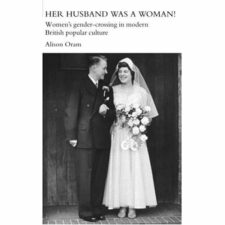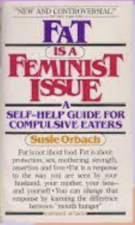The Feminist Library recently celebrated its 35th birthday with an all out party and benefit at the Round Chapel in Hackney. The enormous success of the event marked an important moment in the library’s history and regeneration. However, someone who was sorely missed from the celebrations was Diana Leonard, a member of the founding collective of the library, which started life in 1975 as the Women’s Research and Resources Centre (WRRC). Diana sadly passed on in November 2010: the joy of raising a glass to the continued existence of the library was tempered with sadness that Diana could not be there too. The Feminist Library bears the hallmarks of Diana and its other founders, and volunteers down the years, in its ethos of being a centre which combines activism and radical thought, as well as being an archive and material resource.
The library, however, represents only a fraction of Diana’s work and life. Her method of engaging with feminist thought and practice blurred the lines between radical academic practice, activism and personal lifestyle. To put it another way, she embodied that crucial feminist maxim ‘the personal is political’ – her intense interest in the philosophy and practices of feminist pedagogy, for example, arising partly from her years as a schoolteacher.
Diana’s work constituted an important contribution to the ongoing conversation in the 70s and 80s about how schoolchildren should be taught, as the British system leaned increasingly towards the comprehensive and co-educational model. Diana’s teaching at the University of London Institute of Education brought together the theory and praxis of her analysis of women’s position in education, and influenced generations of working teachers. In an era when it was particularly difficult for women to gain doctorates, let alone tenured teaching positions, Diana took up her lectureship in 1976, and worked continuously for over thirty years, until she retired due to ill health. By that point, she was Professor of Sociology of Education and Gender and had irreversibly altered the landscape of feminist pedagogy in this country. Her students and colleagues from the Institute of Education remember her as a fiercely committed teacher. One anecdote goes that Diana turned up at the doorstep of a particularly distressed doctoral candidate who was trying to complete her thesis, to lend help, direction,and and cups of tea.
Without Diana, feminism in this country could have followed a very different path. She was one of the first to explicitly incorporate gender relations into the study of sociology in the UK. In 1974, she successfully re-orientated the British Sociological Association’s annual conference to focus on‘Sexual Divisions in Society’, and thus to encourage the use of gender as a frame through which social phenomena could be critiqued. The conference resulted in two influential volumes Dependence and exploitation in work and marriage [1976] and Sexual divisions and society [1976] that Diana co-edited with Sheila Allen, and that would eventually help to inaugurate the discipline of women’s studies in the UK.
Diana was also key in anticipating the need for international dialogue between feminist movements. She worked closely with Christine Delphy, a prolific French sociologist who taught at the University of Paris and set up a feminist review, Questions Feministes, in 1977 with Simone de Beauvoir and others. Through Diana and Christine, links between British and French feminist academic and activist circles were established. They also collaborated in writing the book, Familiar Exploitation: New Analysis of Marriage in Contemporary Western Societies (1992). Around this strong working and personal relationship, a group of women gathered who would together develop materialist feminist critiques of the family and domestic work. One of these women was Jalna Hanmer, who also worked with Diana on many political campaigns, including helping to found the WRRC, before moving to Yorkshire and helping to found Feminist Archives North. Jalna stressed that one of Diana’s major achievements was to bring the activists and the analysts closer together, by making a space in women’s studies for the political insights of radical feminism.
Many of the obituaries in the mainstream press focused on Diana’s academic career. There were not many who represented her as a radical figure, with a fierce feminist loyalty and determination, which led her to help found the radical feminist journal, Trouble and Strife, and be part of the group which organised the radical feminist conference which was the source of the infamous Feminist Practice pamphlet. Still fewer mentioned that she had been a lesbian for half her life. The Feminist Library will be hosting a page on its website to preserve Diana’s memory as a woman who meant so much to people in varied and different capacities. If you would like to contribute any memories or thoughts about her, or relevant images, please send them to dianaleonard@feministlibrary.co.uk
This project, like Women’s History Month, acknowledges that understanding where the feminist movement has been will only help us to move forward, and that diluting our radicalism and our activism is not an option.
For more information, follow the links below:
The Feminist Library5 Westminster Bridge Road
London SE1 7XW 020 7261 0879
www.feministlibrary.co.uk http://twitter.com/feministlibrary http://www.facebook.com/pages/The-Feminist-Library/129999410387617
Mathura Umachandran is a volunteer at the Feminist Library.

